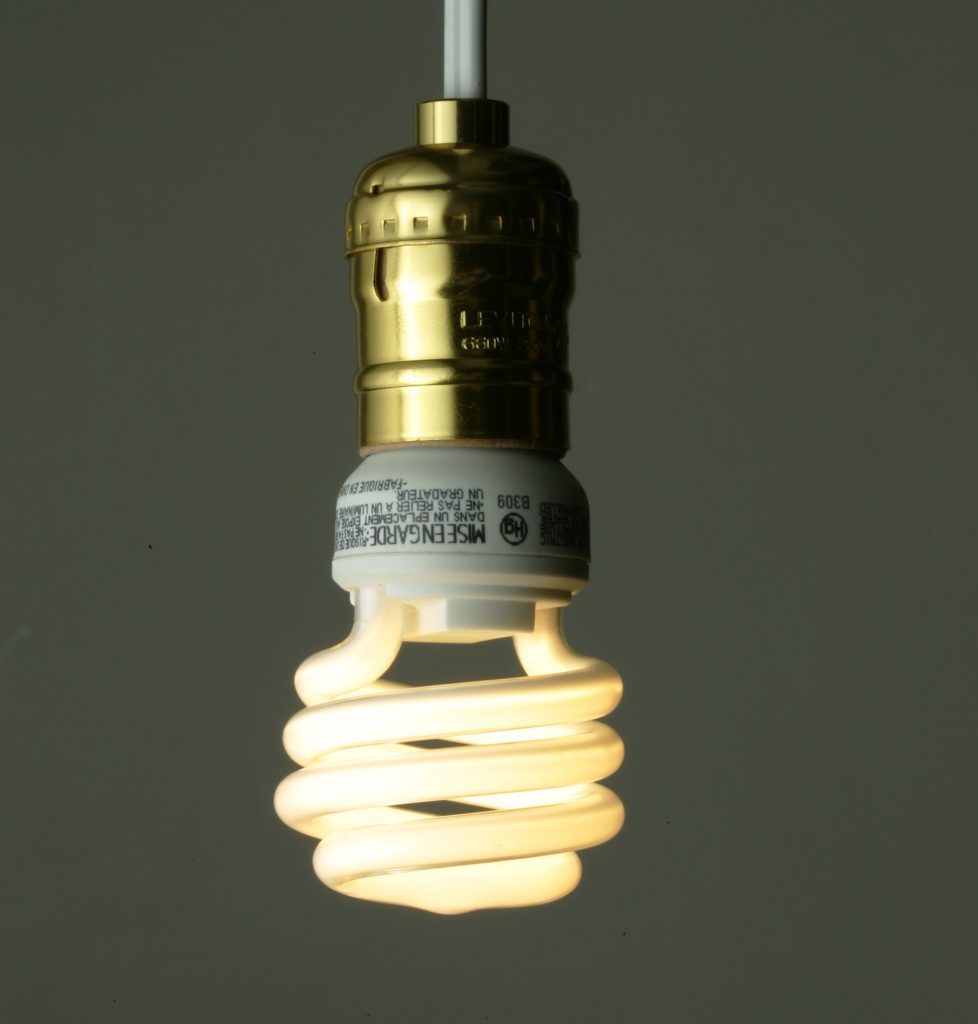Compact fluorescent light bulbs are a newer technology based on traditional fluorescent lighting with many commercial lighting applications. The CFLs are more energy-efficient than conventional incandescent bulbs that were common in most households. Another significant advantage is that the CFLs generate less heat when operating, which makes them considerably less likely to become a fire hazard.
How CFLs Save You Money
Because CFL light bulbs use less energy, they have become quite popular to reduce a household’s energy bill. But many consumers want to know if the savings are noticeable or if this is just a gimmick to sell more CFL bulbs. Energystar.gov has tested numerous lightbulbs to determine their energy-efficiency and found that the highest quality CFLs, which carry their label as ENERGYSTAR rating, use about 75% less energy. And even though these bulbs cost more to purchase than traditional incandescent options, the added cost is recovered in the form of energy savings after just nine months of use.
Longer Life Expectancy
In addition to saving money on your electric bill, CFL light bulbs offer a substantially longer life than incandescent bulbs. The average life ranges from 6,000 hours to 15,000, depending on how and where they are installed. A CFL installed in a fixture with the socket pointed up tends to offer a shorter life span than those installed in the more standard socket down position. Regardless of the socket’s direction or the type of fixture, they far outlast the 750 to 1,000-hour life expectancy of an incandescent bulb. This makes CFLs great for installation in light fixtures that are difficult to access or require a ladder to change. Senior citizens especially appreciate that these bulbs last for years and require fewer trips up a ladder for replacement.
CFL Disposal
What you might not know about CFL light bulbs is that they contain mercury. And that is not a substance that should be finding its way into any landfill. So these newer light bulbs should not be placed in the trash once they finally wear out. Instead, recycling or other proper disposal methods should be used to ensure the safety of our planet.
Your Options For Proper CFL Disposal And Recycling
The first option many homeowners investigate is their local trash service. In many cases, this service is provided by the city or municipality. There are provisions in place for certain types of recycling and special needs waste products. Some offer special pick-up days for items that are on a hazardous material list. Your municipality might also provide a drop-off service in the area so that you can dispose of materials not fit for landfills at your leisure.
Retail Stores
Many retail stores that sell CFL bulbs also offer recycling. There are large receptacles that allow you to drop off used bulbs when you are purchasing their replacements. If you don’t see a recycling box in your favorite hardware store or big box store, ask the customer service desk staff if they offer recycling.
Check Online
There are many great resources online that will provide you with drop-off or shipping details for recycling. RecycleABulb.com and Earth911.com are both reliable for locating recycling centers for CFL bulbs.
To learn more about converting to CFL light bulbs in your home, call (915) 221-8214. The pros at Secure Electrical Contractors are happy to discuss your options and provide you with pricing to update your home’s lighting fixtures and install CFLs. And we will gladly assist you in recycling any used CFL bulbs to help keep hazardous materials like mercury out of our landfills.

